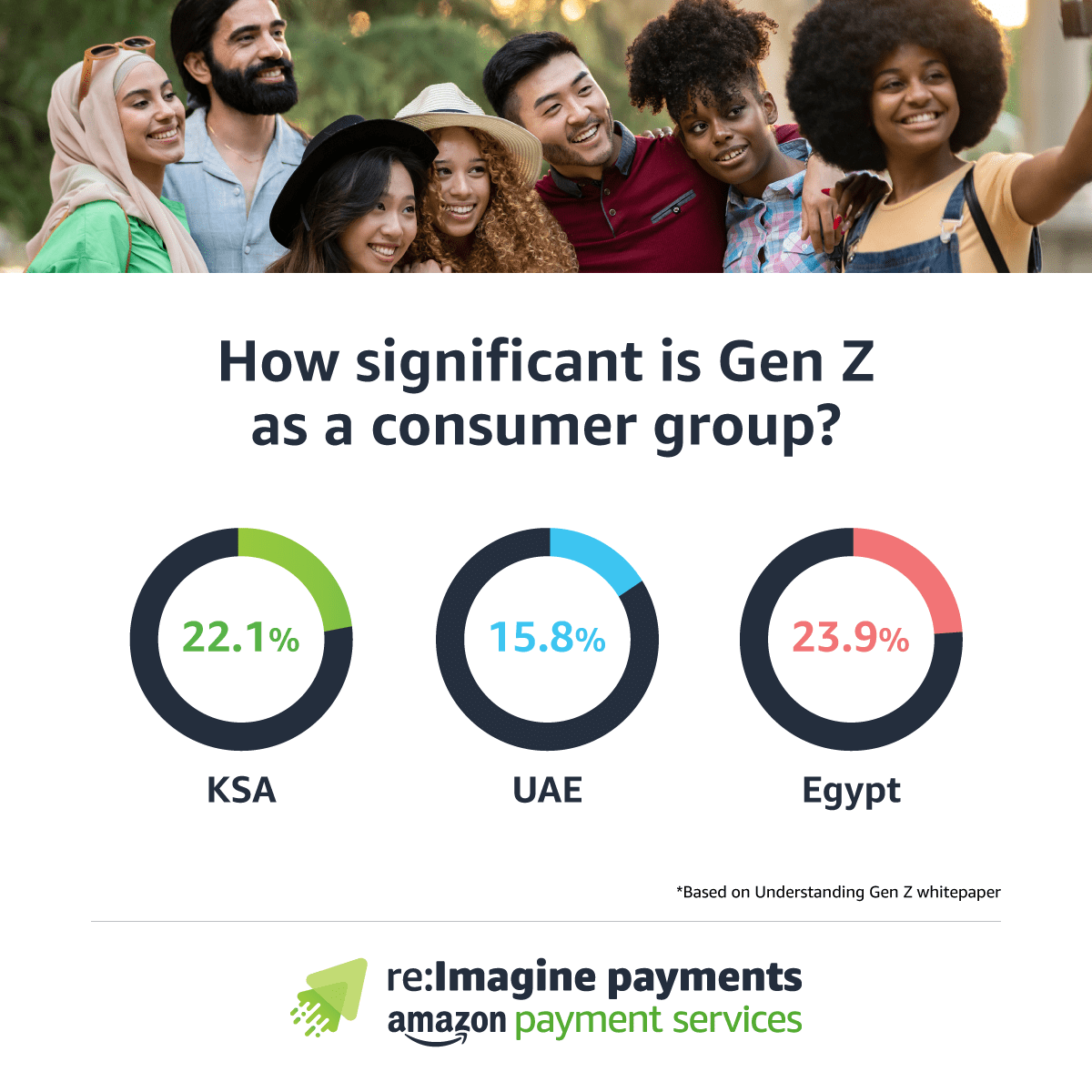Generation Z, the group of consumers who are 25 or younger, is an intriguing generation: some members of this group are still growing up, while the oldest are steadily joining the workforce.
As per the SixthFactor Consulting survey sponsored by Amazon Payment Services, members of Gen Z are practically cradled by the digital revolution, never knowing a world without smartphones, social media, or the internet. Tech-savvy and digitally inclined, Gen Z have a thirst for cutting-edge technology.
Why should merchants concern themselves with a group this young? As members of Gen Z comes into the workforce in increasingly large numbers, they will become a more significant consumer group with increased spending power. Members of Gen Z are also building a strong worldview that influences the way they buy: merchants that want to capture Gen Z’s spending in the future need to understand who this generation is today.
Digital convenience - but a challenging upbringing
Despite the benefits of an early induction into the digital world, members of Gen Z had to navigate numerous hurdles in their transition to adulthood. This includes the COVID-19 pandemic, which resulted in many families experiencing financial hardship. Student debt is also a significant concern for many members of this cohort, more so than for millennials.

Technology has made life more convenient but also introduced new challenges, with members of Gen Z heavily impacted by the challenging aspects of social media which can lead to anxiety, depression, and loneliness.
Gen Z members show concern about climate change, with 84% believing it will affect everyone in their generation. As a generation that’s constantly online, they are continuously exposed to worsening news and information about climate change, demonstrating the drawbacks of being digital natives.
All the above experiences shaped Gen Z’s unique worldview. It means that Gen Z members are particularly passionate about social justice issues and they promote diversity and inclusion in all walks of life.
The next consumer superpower
Although members of Gen Z might not hold the greatest buying power (outside of specific niche markets), they're not a demographic to be overlooked like every generation before them, Gen Z members will eventually graduate into the workforce and build their spending power. In this process, they’ll bring their unique views with them – including their unique expectations of the companies that they buy from.
In MENA, the younger demographic (Gen Z, millennials, Gen X) represents a larger proportion (75%) of the population compared to the global average of 67%. Gen Z alone makes up 23.9% of the population in Egypt, 22.1% in Saudi Arabia, and 15.8% in the UAE. In other words, Gen Z members are the consumer of tomorrow, and their views will impact merchants in the near future

As MENA e-commerce revenue is expected to grow at 11% CAGR through 2026 we’d expect the digitally native Gen Z members will be responsible for a large share of that growth. Gaining the attention of this demographic now can help businesses establish a solid foundation with Gen Z.
By catering to Gen Z's needs and understanding their preferences early on, retailers can create trust and loyalty. As this generation grows, their long-term relationships will reap dividends, with Gen Z remaining faithful to the merchants they've come to trust.
How does Gen Z compare to millennials?
Comparisons between the Gen Z and Millennials show a few distinct contrasts. While both cohorts are relatively tech-savvy compared to Gen X, Gen Z have a more immersive relationship with technology. Millennials exhibit greater caution in data sharing, whereas Gen Z is open to exchanging personal information with trusted brands, in exchange for personalized experiences.
Generation Z being the most diverse generation yet, places greater emphasis on environmental and social justice issues – with 75% convinced that society is at a tipping point in responding to climate change. In terms of content consumption, they are more inclined towards short-form content and visual media due to their shorter attention spans.
According to the research, in terms of work-life balance, Millennials can appear more career-focused, willing to sacrifice their personal life for professional success. Conversely, members of Gen Z value a balanced life, prioritizing personal life over career progression. It was also interesting to find that Gen Z displayed strong entrepreneurial characteristics.
Merchants need a strategy for Gen Z
It's understandable that businesses might be inclined to focus on consumer groups with the most spending power, like millennials or Gen X. However, members of Gen Z represent the future high-value customers. Every year more members of this generation are entering the workforce, enhancing their buying power, and reshaping the consumer landscape.
Businesses that create products and services tailored to Gen Z’s evolving tastes will position themselves as trendsetters, creating a robust bond between their brand and Gen Z. That includes adopting the digital payments solutions preferred by Gen Z members – such as digital wallets, Buy Now Pay Later (BNPL), and omnichannel and in-app payments.
In terms of payments, businesses need to move particularly quickly – one of the respondents from the survey said: “I don’t see us using cash much in the future. Things are really simple with digital payments; I am not even used to carrying my cards anymore. This is the future.”
Understanding and targeting Gen Z members is a strategic investment. Only those businesses agile enough to meet their unique needs will be able to make the most of this emerging group in the years to come.
Want to find out more about Gen Z and how your business can address Gen Z? Download our whitepaper Understanding Gen Z here.

